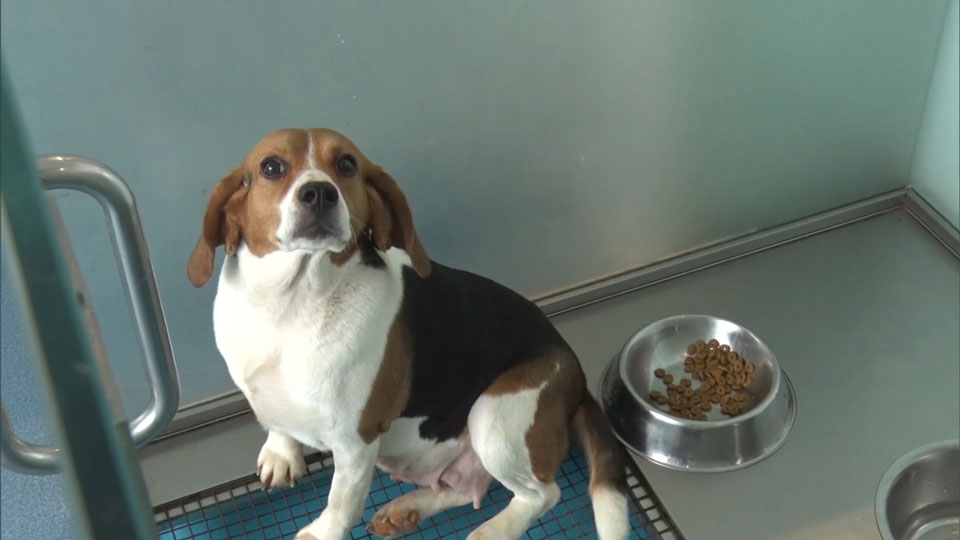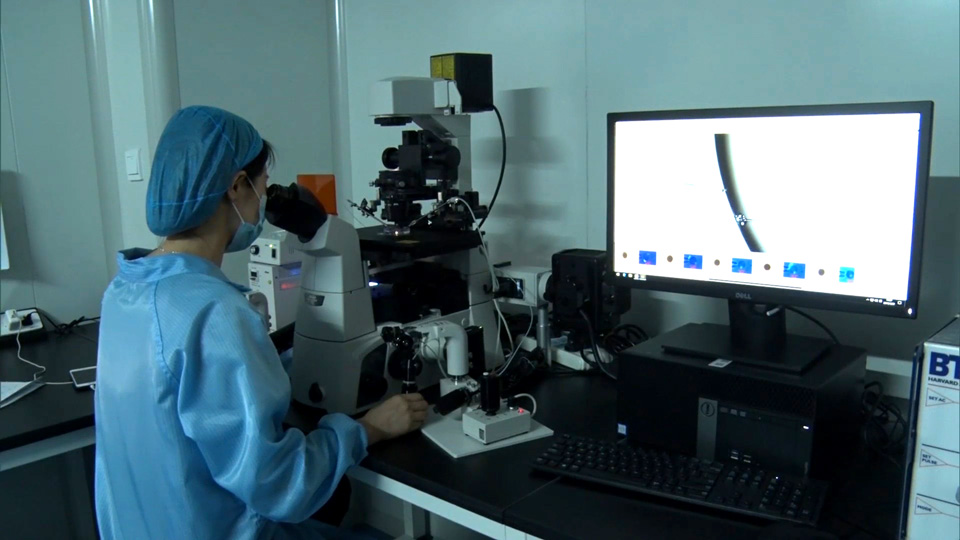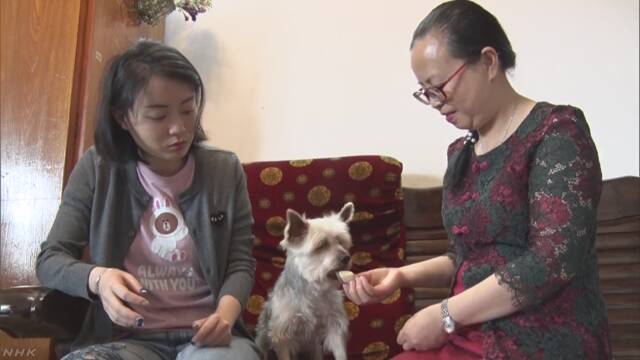The company keeps a number of dogs it refers to as "surrogate mothers." They give birth to clone puppies ordered by clients. Most are beagles whose mild character is considered to make it the ideal mother.

The firm has a lab where it cultures the cells needed to create clones. The process involves removing the nucleus from a dog's egg, and then transplanting the nucleus of a cell from another dog. These eggs are placed in the wombs of the surrogate mothers.
Cloning a dog costs about $55,000. This may sound steep but SINOGENE says it gets inquiries from across China.
Zhao Jianping, the company's deputy general manager, says the firm is targeting 100 to 200 orders this year, and 300 to 500 annually in a few years. He says demand for the service is already high and, given the thriving pet industry, it will start soaring once more people learn about the option.

Xiao Bing and her mother, from the city of Chongqing, where among the firm's first clients. Their dog, Kandou, is now 10 years old and has been showing signs of age.
Xiao says the thought of losing Kandou is too much to bear. She says a clone would make things better, even though she knows it wouldn't be the same dog.
She and her mother took Kandou to an animal clinic partnered with SINOGENE. The dog underwent a procedure where it had a few millimeters of skin cut off around its rear groin. It only took a few minutes. Cells were sent to the firm's lab in Beijing and Xiao will receive Kandou's clone in ten months.

In the southwestern province of Yunnan, scientists are now cloning police dogs. There are high hopes for one in particular, cloned from a dog with an excellent reputation for its work. The puppy is now being trained to work with officers. Scientists say cloning high performance dogs can save police departments time and money that would otherwise be used to train dogs with lower potential. But the practice has not been free of criticism.
Human cloning is banned in most countries but there are few clear restrictions on pet cloning. Experts say using the technology for breeding is problematic.
Professor Tetsuya Ishii of Hokkaido University is an expert in bioethics. He says cloning is dangerous for the pets and can be painful. He says host mothers often experience miscarriages or stillbirths. And even when a clone is successfully delivered, some are born with congenital disorders.
Some dogs in China are seen as symbols of success and status. Companies like SINOGENE are profiting from this tradition but concerns are rising about what the cost is for the dogs themselves.

